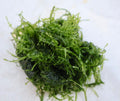Rocks and How it Affects the Ph Level
Over time, rocks with a high concentration of certain iron-based compounds can lower the pH. Alternatively, there are materials that raise pH. The addition of limestone to an aquarium will increase the pH, leaving the water alkaline.
Do rocks impact the pH?
Yes, rocks affect pH. The vast majority of rocks tend to raise the pH, but some are neutral, leaving the water stable (one of these neutral rocks is lava rock, which has a pH of 7). In a volcanic rock aquarium, pH is neutral).
Before setting up a freshwater aquarium, we must always know and research the species of fish we intend to keep so that we can choose the pebbles, sediment, and other decorations that will maintain the desired water qualities.
How do minerals alter their pH?
When setting up an aquarium, mineral water is most commonly used. The water's natural pH may vary depending on the region or its source, but it is generally stable.
When we add this water to the aquarium, the sediment or stones within the aquarium water can rapidly alter its chemical composition, particularly its pH.
This occurs because minerals can dissolve slowly in water, releasing compounds in variable quantities.
Among the numerous substances, calcium and limestone are present.
These substances can alter the pH and hardness of water, as well as cause a buffering effect, which tends to keep the pH "locked" at a value determined by the chemical compounds present in the correct quantities.
Those rocks that increase the pH of water.
All of the objects that elevate the pH of the aquarium water are calcareous, containing elements such as ions, calcium, carbonates, and bicarbonates, such as corals and limestone.
This alkalinization is caused by the dissolution of ions contained in these stones. These compounds increase the alkalinity and mitigate (maintain) a high pH.
Every time we attempt to lower the pH of a freshwater aquarium containing these types of minerals, the pH changes temporarily but returns to its original value in less than 24 hours.
It is crucial to note that not only was the correction ineffective, but the fish also experience a pH shock when the pH declines and returns so abruptly to its original value.
Are river pebbles alkaline?
Before inserting rocks from a nearby stream or river in our aquariums, it is essential to know the rock's origin, as this is the only method to determine whether it is neutral or alkaline.
In freshwater aquariums, pebbles or river sediment are typically used as decoration and substrate for various species. The majority of these stones are chemically inert and do not affect the pH, in addition to providing the fish with a dark substrate and a good growing medium for plants.
We can readily conduct experiments to determine whether the rock is neutral or alkaline, and we should always do so if there is any doubt.

















Thank you for explaining how rocks can raise ph in a manner that was simple and straightforward. My question is regarding the opposite though. If your ph is alkaline, then would the rock fail to dissolve ions raising the ph? I have researched many articles and cannot find an answer. One You Tuber has stated that the stone in his tanks have not altered his ph which is around 8.2. The guy at the pet store where I live has a ph of 8 like I do. He puts in driftwood to lower the ph as well as a small amount of crushed coral to keep the ph from dipping to low. This makes sense to me because I had the experience of peat lowering my ph too much as well. He stated that the crushed coral does not work if the ph is above 7. What is your opinion?